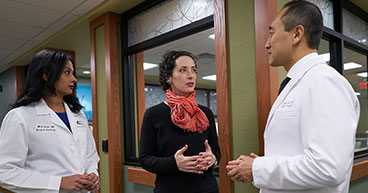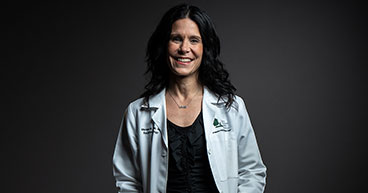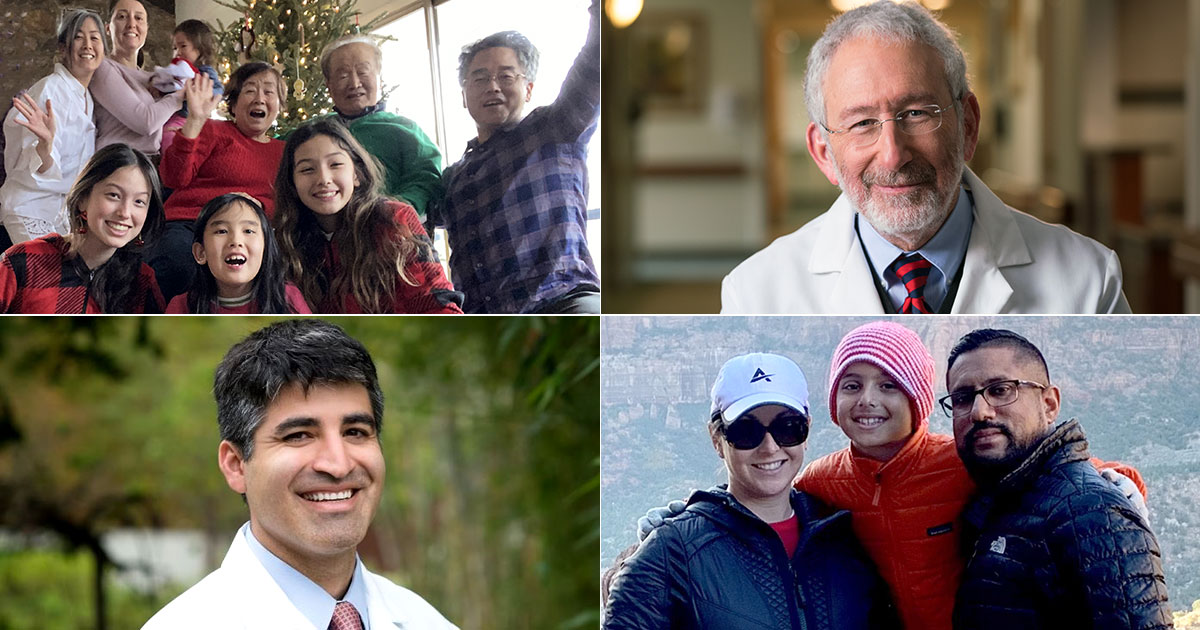
For many doctors, practicing medicine is a calling, driven by a commitment to help others—for some, since childhood. For doctors who treat cancer patients, that calling often serves another purpose: to pay homage to a loved one who succumbed to disease.
“I’ve been given certain gifts and talents and abilities,” Nathan Neufeld, DO, says in a Passion Behind the Practice article posted on the CancerCenter.com. Dr. Neufeld, Pain/Palliative Care Program Specialist at City of Hope Atlanta, was drawn to medicine after his mother passed away from breast cancer when he was a teenager. “I’m able to practice and use my talents to give back to humanity and to the community I'm a part of.”
But answering the call to be a physician requires unwavering focus—and often a high financial cost—while also demanding an emotional commitment and a willingness to invest oneself in patients who are facing difficult circumstances and uncertain outcomes.
On this National Doctors Day, we talked to some of our City of Hope physicians to ask:
- What does it take to become doctor?
- Why were our doctors drawn to oncology?
- What do they do to recharge from the challenges of the job?
If you’ve been diagnosed with cancer and are interested in a second opinion about your diagnosis and treatment plan, call us or chat online with a member of our team.
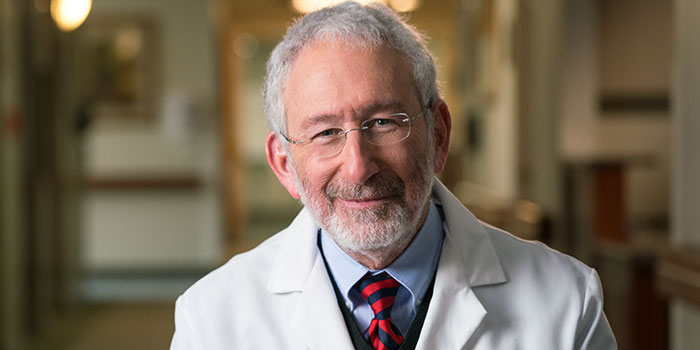
Maurie Markman, MD
What does it take to become doctor?
The road to becoming a physician is long and arduous, taking up to a decade of schooling, training and testing. The commitment may require more years of training if a doctor wants to focus on a specific specialty, such as oncology, the branch of medicine that focuses on cancer.
Most oncologists, for instance:
- Earn a bachelor’s degree, often in pre-med or a relevant science (though some choose to major in other fields while taking the prerequisites required of medical school)
- Score competitively on the Medical College Admissions Test (MCAT)
- Get into and graduate from medical school, which usually takes four years
- Complete a residency, which may take up to four years
- Complete a fellowship, usually in a specialty that requires additional years of training
- Get licensed
- Become board certified by passing a test in their specialty
- Earn continuing medical education credits to stay up to date on the developments in their field
Getting the required education to become a doctor doesn’t come cheap. A four-year college degree at a U.S. school can cost up to $200,000, and medical school tuition may cost up to $60,000 a year.
Internships, fellowships, licensing and board certification often require long hours of study, observation and clinical rotations for years after medical school graduation.
Still, most doctors say they have no regrets about choosing their profession. In a 2017 survey conducted by the American Medical Association (AMA), nine out of 10 doctors said they were “satisfied with their career choice, despite challenges common to each career stage.”
The survey of 1,200 physicians, medical students and residents also found that:
75 percent said helping people is the reason they chose the profession.
61 percent said they’d encourage others to become a medical professional.
73 percent said they knew before the age of 20 that they wanted to be physicians, and nearly one-third knew before their teenage years.
“It’s difficult to overstate the privilege I’ve felt over the past several decades to be an oncologist and to have been able to help patients and their families during the cancer journey,” says Maurie Markman, MD, President of Medicine & Science at City of Hope Atlanta, Chicago and Phoenix. “Of course, cancer care can be complex, but the knowledge that you’re providing clinical and emotional support in settings that are among the most challenging faced by any clinician is an intensely satisfying reward that cannot be duplicated.”
Why were our doctors drawn to oncology?
Respondents to the AMA survey also said that “personal experiences as a patient, volunteer and with family members played a role—across career stages—in realizing one’s calling to practice medicine.” That’s a common theme repeated by many City of Hope oncologists who found their passion for patient care through the events and relationships that help shaped their lives.
Barbara Buttin, MD, for instance, was drawn to oncology by her mother’s battle with metastatic breast cancer. But a stroke caused by an undiagnosed heart condition and her experience as a patient also profoundly shaped her approach to patient care.
“When you’re a doctor who has seen the patient end of things, it gives you an extra level of empathy and an extra skill set you can use as a navigator and an advocate for your patients to help them get through a difficult time and a difficult decision-making process,” says Dr. Buttin, Gynecologic Oncologist at City of Hope Chicago.
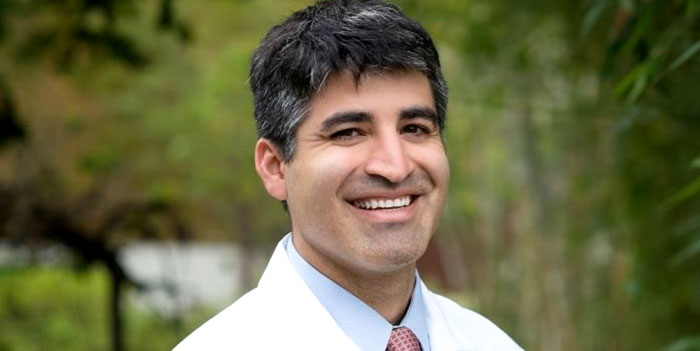
Alex Herrera, MD
Like many doctors, Alex Herrera, MD, Hematologist-Oncologist at City of Hope Duarte, was drawn to oncology by the challenges of helping patients with a difficult disease. But it was his desire to truly connect with his patients that forged his commitment to the specialty.
“When I started my career, we only had chemotherapy as a treatment for most cancers,” Dr. Herrera says. “What we’ve learned about the biology of cancer has sparked a revolution of targeted therapy and immunotherapy for cancer that was a huge draw toward oncology for me. But most of all, the very special, intense relationship an oncologist has with a cancer patient was the kind of patient-doctor relationship I knew I wanted to have.”
It was one particular patient who drew Irene Kang, MD, to oncology. Originally eyeing a career in pediatrics or geriatrics, Dr. Kang says a rotation in oncology steeled her career choice.
“My heart broke for our patients with cancer,” says Dr. Kang, Medical Oncologist at City of Hope Orange County. “There was one patient who sought treatment very late because she was so scared of her breast cancer, and it meant so much when the team was able to take care of her cancer despite all her fears.”
It's this commitment to quality patient care that often motivates doctors and keeps them focused and grounded, says Pankaj Vashi, MD, Gastroenterologist and Vice Chief of Staff at City of Hope Chicago.
“I’m always motivated by the ways we develop new techniques and procedures to help our cancer patients,” he says. “Today, cancer treatment has become a multidisciplinary field. It’s great to be able to play an important role in the care of all our gastrointestinal cancer patients.
“But cancer care is tough,” he added. “Not everyone responds the way we want them to. Seeing young patients struggling for their lives keeps me grounded enough to realize that we have a long way to go to win this battle against this dreaded disease.”
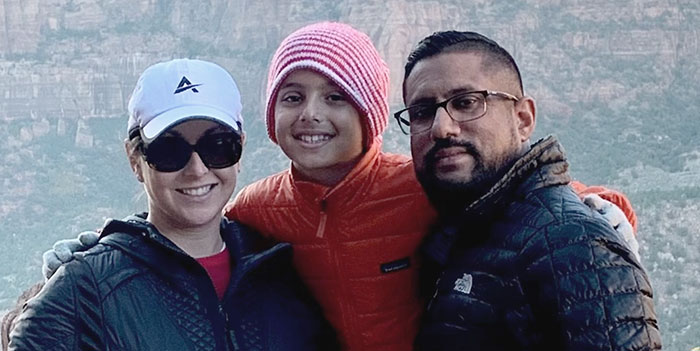
Vivek Iyer, MD, with his wife, Megan and their son Shaan
What do they do to recharge from the challenges of the job?
Long hours, difficult cases and dealing with the emotional strain of losing patients can take toll on doctors. With patients' lives often hanging in the balance, many cancer doctors and others dealing with potentially deadly diseases carry with them the fears and hopes of their patients and loved ones.
Then there’s the administrative responsibilities, paperwork and constant need to educate themselves on new developments and techniques, making for an often-stressful work life.
A 2018 report published by The Doctors Company reveals a side of the profession many patients don’t see: challenges that are leading to physician burnout. The report cites economic changes in health care, long hours and shifting business practices for doctors’ disenchantment.
When the stress of the job becomes overwhelming, many doctors look to their families and loved ones to escape the pressures of their work life.
“Physicians, especially those working with cancer patients, are at high risk of emotional and physical burnout,” Dr. Vashi says. “I personally like to spend time with family and take vacations to unwind. I joke that I have two families—work and home.”
“Spending time with family is my best way to recharge,” says Vivek Iyer, MD, Medical Director of Pain Management at City of Hope Phoenix. “My wife and I enjoy hiking. Watching our son play baseball takes up a lot of our time.”
“Family time is the most important to me,” Dr. Kang says.
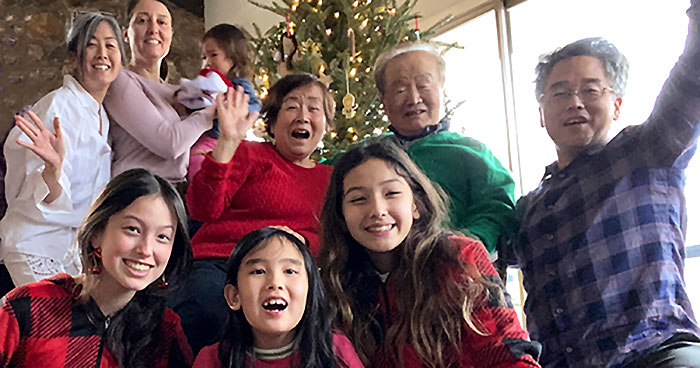
Eugene Ahn, MD, with his family
Eugene Ahn, MD, Deputy Medical Director of Clinical Research at City of Hope Atlanta, Chicago and Phoenix, learned from a young age how important family time was to the medical career dynamic. Dr. Ahn’s father, Yeon S. Ahn, MD, was an oncologist and hematologist who shared patient stories at the family dinner table most nights. Those family discussions eventually drew Dr. Ahn to oncology.
“When he came home for dinner, he often would share challenging situations, or stories, or some discoveries that he had at work,” Dr. Ahn says. “It was all part of the day-to-day flow of our family. I was always fascinated by the challenges he was talking about.”
Today, family time is still vitally important to Dr. Ahn. Just as he’s motivated to improve patient care, he’s also committed to becoming the best husband and father he can be.
“Because I have two daughters who I cannot wait to see each day as I get home from work, I’m reminded that everyone deserves that freedom,” he says. “My family is what keeps me grounded. No matter what I might achieve, I’m only as good as the last garbage I took out or dishes I’ve done.”
If you’ve been diagnosed with cancer and are interested in a second opinion about your diagnosis and treatment plan, call us or chat online with a member of our team.

